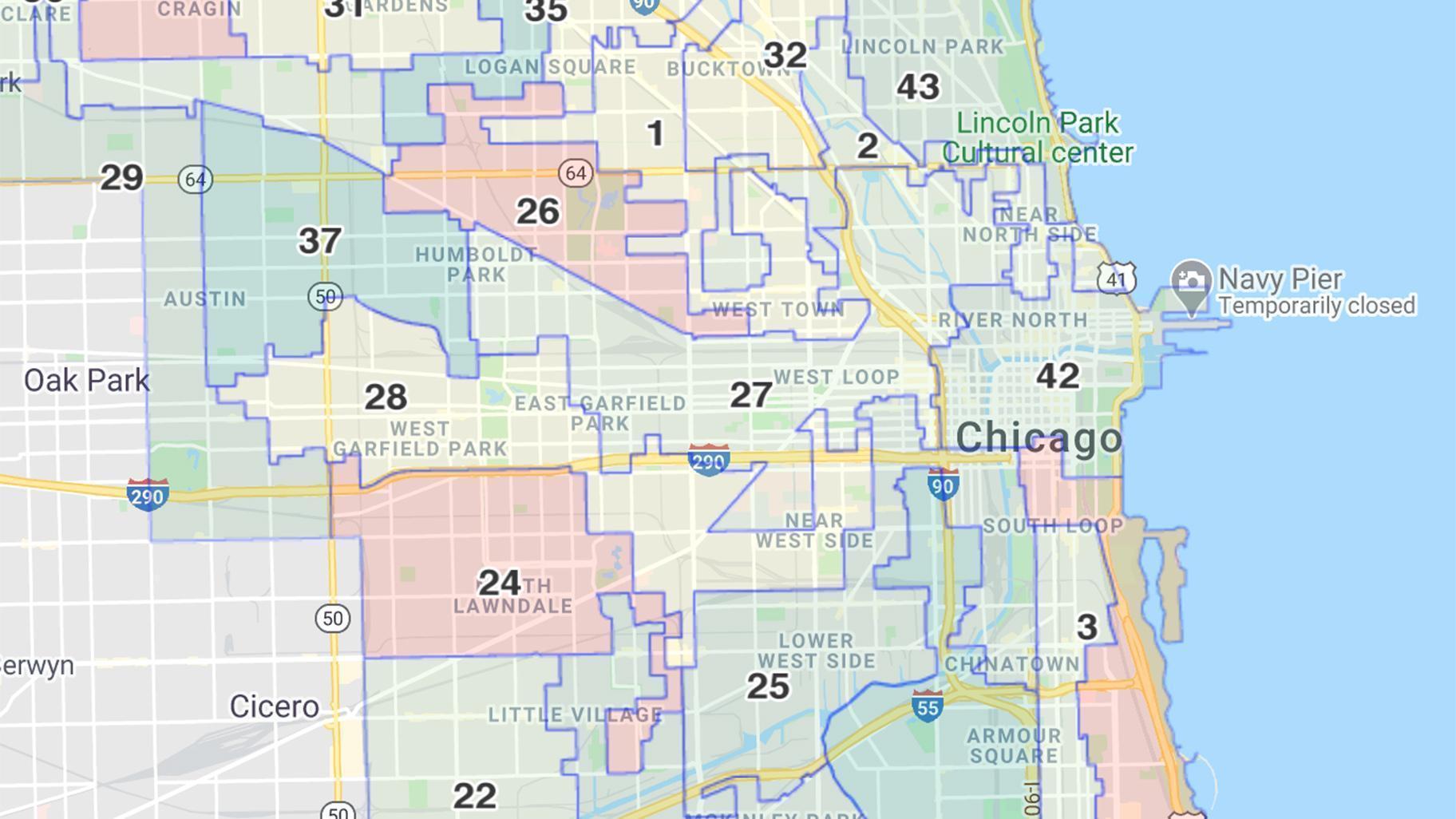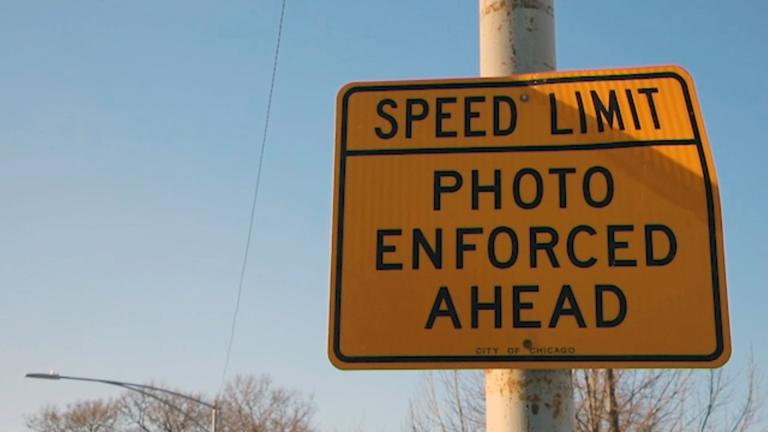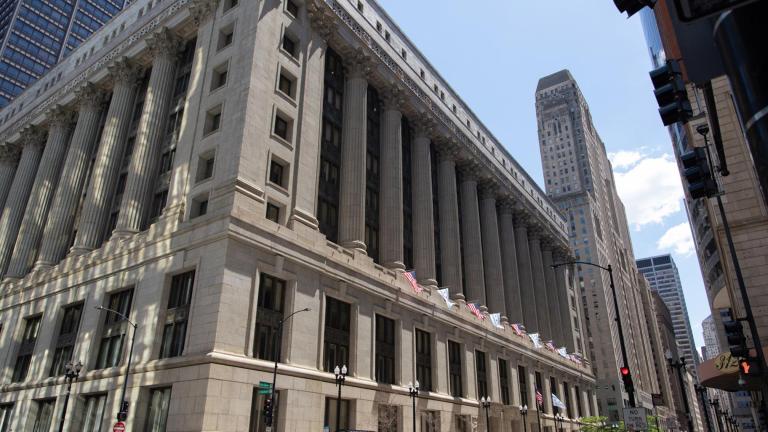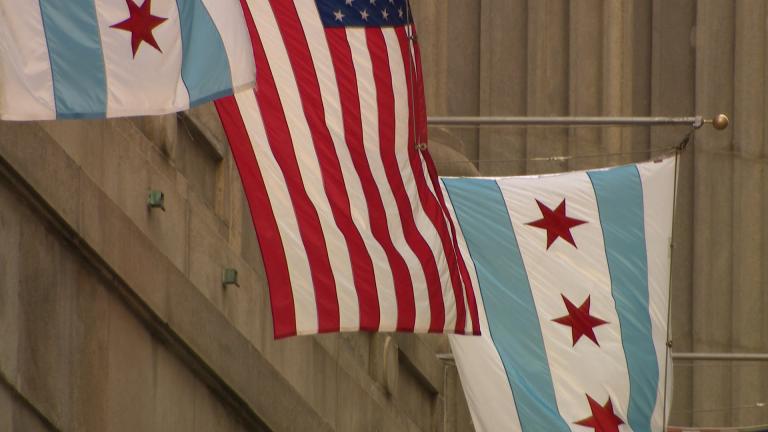 (WTTW News)
(WTTW News)
Leaders of the groups that successfully pushed Chicago elected leaders to support a map that redraws the 11th Ward to include a majority of Asian American voters warned members of the City Council that asking voters to decide the boundaries of the city’s 50 wards “fans the flames of racial division.”
Members of eight groups, including the Coalition for a Better Chinese American Community, Asian Americans Advancing Justice and the HANA Center, hailed the fact that the 11th Ward would be redrawn to be centered around Chinatown with a majority of Asian American voters under both maps supported by the Black and Latino caucuses during a Wednesday evening virtual meeting.
“There is a lot to be celebrated,” said Justin Sia, democracy, voting rights and redistricting counsel for the Chicago chapter of Asian Americans Advancing Justice.
Creating a Chicago ward with a majority of Asian American voters would fulfill a push that began in 1991 with unfulfilled demands that Chinatown not be divided between two wards. Demands for a ward with a majority of Asian American voters comes as Chicago’s Asian American community grew by 31% in the past decade, according to the 2020 census.
“We are pleased with where things are and we are happy that there is an Asian American ward in both versions of the map,” said Grace Chan McKibben, executive director of the Coalition for a Better Chinese American Community, known as CBCAC.
Chan McKibben did not endorse either map.
However, the leaders of the groups warned that the increasing likelihood that the June 28 primary election ballot will ask voters to decide what Chicago’s ward map should look like for the first time in 30 years presents a moment of peril for Asian American residents of Chicago.
Asian Americans Advancing Justice opposes a referendum to decide Chicago’s ward boundaries because it will cause “more harm than good for our communities,” Sia said.
 A proposed Chicago Ward Map supported by the Chicago City Council's Black Caucus. (Provided)
A proposed Chicago Ward Map supported by the Chicago City Council's Black Caucus. (Provided)
Members of the Black and Latino caucuses remain bitterly divided over what the map — redrawn to reflect the results of the 2020 census — should look like. The final map will shape Chicago politics for the next decade and determine the balance of power between Black, Latino and Asian Chicagoans.
Always fraught, this year’s remapping effort is particularly tense because of the city’s changing racial makeup. While Chicago’s Black population dropped 10%, its Latino population jumped 5% and its Asian American population surged 30%, according to the 2020 census.
State law requires Chicago wards to be “nearly equal as practicable” while being as “contiguous” and “compact” as possible while complying with the Voting Rights Act, which is designed to protect the voting rights of Black, Latino and Asian residents.
Since Chicago’s population in 2020 was 2,746,388 residents, each ward should have 54,928 residents, according to data presented to the Chicago City Council.
The City Council’s Black Caucus has refused to accept a map that creates 15 wards with a majority of Latino voters as demanded by the Latino Caucus.
The map supported by the Black Caucus crafts 16 wards with a majority of Black voters, one ward with a plurality of Black voters and 14 wards with a majority of Latino voters.
Thirty-three alderpeople support the map backed by the Black Caucus — eight short of the votes needed to avert a referendum in June. The deadline to call off the referendum is May 19.
The months-long dispute has grown increasingly acrimonious, with Rules Committee Chair Ald. Michelle Harris (8th Ward) calling members of the Latino Caucus “crybabies.” Harris is a member of the Black Caucus, and serves as Mayor Lori Lightfoot’s floor leader.
Latino Caucus Chair Ald. Gilbert Villegas (36th Ward) accused Black Caucus Chair Ald. Jason Ervin (28th Ward) of echoing racist rhetoric used by former President Donald Trump by crafting a map using the share of Chicagoans who are citizens older than 18, rather than the number of Chicagoans who are older than 18.
That debate “fans the flames of racial division in our city,” Sia said.
“Over the past several months through this redistricting work, we’ve seen that the racial caucuses openly fight and insult each other during public hearings and behind closed doors,” Sia said. “As an organization that strives to promote racial solidarity, we are fully against racial divisiveness because it is so unhealthy in advancing racial equity, which benefits everyone in our city.”
![A proposed Chicago Ward Map endorsed by the Chicago City Council's Latino Caucus and Change Illinois. [Provided] A proposed Chicago Ward Map endorsed by the Chicago City Council's Latino Caucus and Change Illinois. [Provided]](/sites/default/files/styles/full/public/article/image-non-gallery/Resized_Coalition_Map_-_2.16.22.jpg?itok=hmg3loVm) A proposed Chicago Ward Map endorsed by the Chicago City Council's Latino Caucus and Change Illinois. [Provided]
A proposed Chicago Ward Map endorsed by the Chicago City Council's Latino Caucus and Change Illinois. [Provided]
Harris told WTTW News on Thursday that she agreed with Sia.
“I have always wanted to avoid a referendum,” Harris said. “I am still hopeful members of the Latino Caucus will come together and work out a compromise with us.”
Villegas referred questions from WTTW News about the call from the coalition of groups to reach a compromise and avoid a racially divisive referendum on Thursday to Ald. Carlos Ramirez-Rosa (35th Ward). Ramirez-Rosa did not respond to a request for comment.
The referendum will also be confusing for Asian American voters, some of whom do not speak English as a first language, and will be the last question on a very long ballot Sia said.
“Ultimately, we worry that many voters are just going skip this question or, at worst, choose an option that does not accurately reflect their interest,” Sia said.
The fact that the ward boundaries are unlikely to be settled until late summer will create additional uncertainty and make it hard for Asian Americans to participate in Chicago’s civic life, Sia said.
“There are plenty of reasons that this referendum in the way that it is set up this year will actually hurt Chicago’s Asian Americans and others who want to actively participate in our democracy.”
Contact Heather Cherone: @HeatherCherone | (773) 569-1863 | [email protected]








